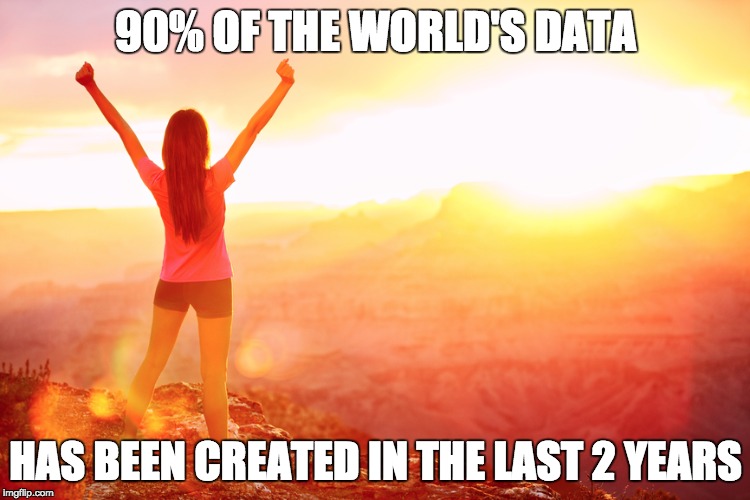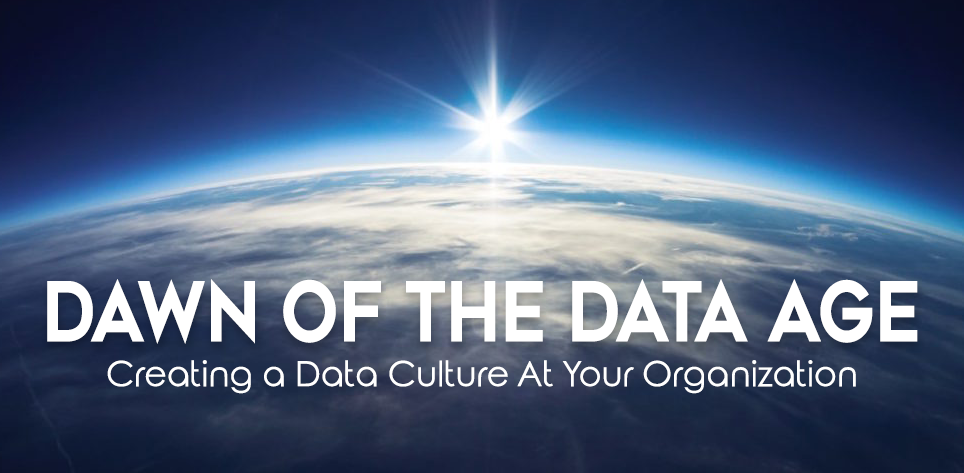An often-cited stat is that 90% of the world’s data has been generated in the last 2 years. While that quote makes an awesome motivational poster (especially if it was created by the motivational AI poster bot, Inspiro, like the one below) it grossly understates the locomotive-like-momentum data is experiencing right now, how much more intense it’s about to become, and how poorly most organizations are handling this.

Data Bragging Rights
Let’s start with the smart companies because it’s always better to point out successes over failures. Despite all the people out there saying they’re “data-driven” very, very, verrrrry few actually are and those organizations are easy to spot because they’re absolutely dominating their space and competitors by using data as a competitive advantage. The usual examples are Amazon mining customer data to remove friction from the buying process and make targeted upsell recommendations as a way to destroy retail competitors. Or Tesla collecting in-depth data on every car and it’s driver to understand and optimize their user experience (and self-driving AI) through iterative product improvements to kill traditional automakers. Or Linkedin utilizing profile data to create job opportunity matching to make traditional job-searching a thing of the 20th century.
Why Most Are Failing
These companies have cracked the code when using data in their decision making, but what makes them doubly awe-inspiring is they’ve done this while almost everyone else (80%) fail when trying to use their data. Their monopoly on better information (which is all data actually is, better info) won’t last long and I predict that within 5 years solid data literacy will be a common job requirement, akin to typing. That means that every person who wants to work for a startup, SMB, or enterprise, will have to know how to handle and interpret data at a basic level. There will still be experts, but the future clearly demands that everyone doing business is capable of bridging the current data-gap.

How To Not Fail
The most crushing problem facing organizations trying to become data-drive is the lack of a common baseline of data knowledge. That, plus most don’t have a dedicated data team or a centralized data environment (which people in the company can easily, and readily, access), there’s no buy-in from DMs, and IT often stonewalls everyone else (sometimes rightfully). Those are just a few of the problems I’ve observed as my team has helped organizations get a handle on their data, and all are fixable. Every one of them.
Dawn of the Data Age Lecture Series
For all of those reasons and more (TBH, I love teaching) I created a free monthly lecture series that aims to bring decision-makers and stakeholders together to discuss and learn about everything data. The Dawn of the Data Age benefits from, and builds upon, the material I teach at the University of Utah and Westminster and will showcase current data scientists and their methods with the explicit goal of bridging the current data-gap within organizations (starting with leaders first). You can participate in this free lecture series by registering here.


